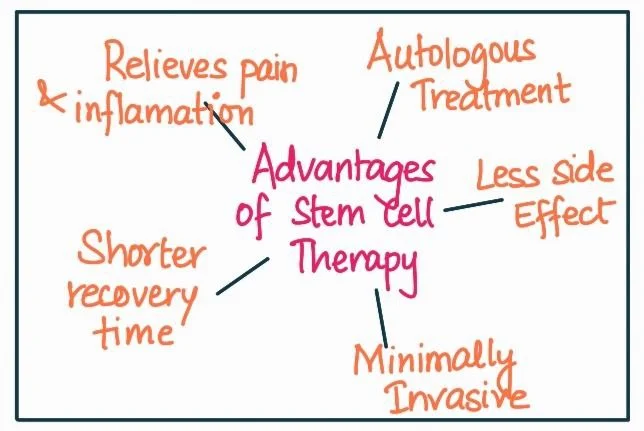Answer:
| Approach:
Introduction
Introduce stem cell therapy as a form of regenerative medicine, briefly explaining what it is and how it works.
Body
- Discuss the wide range of medical conditions that stem cell therapy can potentially treat.
- Explain how stem cell therapy promotes the body’s natural healing processes.
- Highlight the role of stem cell therapy in reducing reliance on organ transplants.
- Detail the significant promise that stem cell therapy holds for treating genetic disorders.
Conclusion
- Conclude by acknowledging the great potential of stem cell therapy.
|
Introduction:
Stem cell therapy, also known as regenerative medicine, is a revolutionary treatment approach that uses stem cells to repair diseased, dysfunctional, or injured tissues. Stem cells are unique because they have the potential to develop into many different cell types in the body, making them a powerful tool for healing.
Body:

Advantages of Stem Cell Therapy:
- Broad Application: Stem cell therapy has potential applications across a wide spectrum of conditions, including leukemia, Thalassemia, cornea damage, and burns, extending beyond the reach of conventional treatments.
- Natural Healing: The therapy encourages the body’s natural healing mechanism, promoting tissue repair and regeneration.
- Reduced Dependency on Donor Organs: Stem cell therapy can reduce the dependency on organ transplants, which often have long waiting lists and risk of organ rejection.
- Potential in Genetic Disorders: Stem cell therapy holds significant promise for genetic disorders like Thalassemia, where it can replace the defective cells with healthy ones, offering a potential cure rather than mere management.
- Advancement in Neurological Treatments: Stem cells hold significant promise in treating neurodegenerative disorders.
- For instance, in conditions like Parkinson’s and Alzheimer’s disease, stem cells could potentially replace damaged neurons, offering new possibilities for treatment and recovery.
- Revolutionizing Personalized Medicine: Stem cell therapy could be a game-changer for personalized medicine. Using a patient’s own stem cells, treatments could be tailored specifically to their unique genetic makeup, increasing effectiveness and reducing the risk of adverse reactions.
- For instance, this approach could optimize cancer treatments, providing therapies that target specific genetic anomalies within a patient’s tumor cells.
Conclusion:
It’s important to note, however, that while stem cell therapy holds great potential, it’s still a developing field and is currently approved for a limited set of conditions. More research and clinical trials are needed to fully understand the implications, risks, and ethical considerations associated with this therapy.
